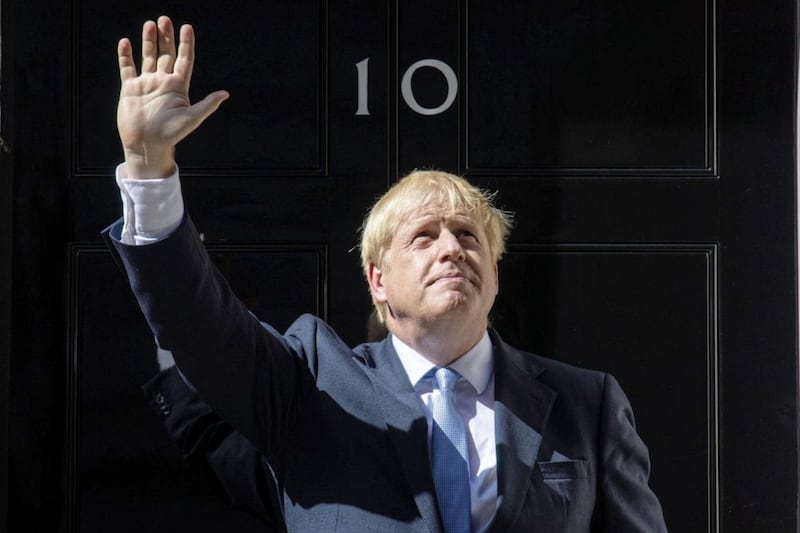Boris Johnson is set to meet the new EU president, Ursula Von Der Leyen, today and according to the British spin, he will begin trade talks with her.
He won’t of course. She doesn’t conduct trade talks, and neither does he, and the EU hasn’t published its negotiating terms yet, but it’s all part of the optics. He will also tell her that the transition period will not be extended beyond December 31, something no one, probably not even Johnson, believes.
Nevertheless, the meeting is a useful reminder that there should be more to negotiations at Stormont than Acht na Gaelige and the petition of concern. There’s the Irish protocol, the only substantive part of Theresa May’s deal that Johnson managed to change. Is anyone talking about it though? Not that the north’s parties can have any effect on the protocol which is agreed between the UK and the EU, but they can affect how articles 5-10 of the protocol operate on everyone on this island. There’s a useful summary of the protocol’s provisions provided by QUB’s Katy Hayward on qpol.qub.ac.uk where you can download it.
As well as the changed protocol agreed with Varadkar at the meeting in the Wirral in October there is a revised Political Declaration with particular arrangements for the north whereby the north remains aligned with the EU on customs and goods and Union Customs Code, but Britain is free to diverge, as Johnson claims he will do. Unlike Theresa May’s nonsensical, unworkable all-UK backstop, this protocol is permanent.
Well yes, you say. We know all that. What most people don’t seem to know is that the assembly has an input into the permanence of alignment with customs, goods, VAT, technical regulations and Ireland’s single electricity market. Oh, and the possibility of extending the transition period doesn’t apply to us because, after all, the north remains aligned for trade etc. regardless of any deal Johnson ultimately makes. However, the north can opt out of the arrangement if MLAs vote to do so and align with an isolated, impoverished Britain.
Here’s where it gets interesting. The DUP, admittedly in a state of shock after Johnson tossed them overboard, argued wrongly that unionist consent was needed to remain aligned with much of the EU’s arrangements and therefore that there had to be cross-community consent in any such vote. In fact, the Good Friday Agreement is quite explicit that unionist consent is required only for constitutional change. Obviously being aligned with EU regulations doesn’t alter UK sovereignty, and anyway there are thousands of unionists happy to remain fully in the EU. Just to hammer home that point the British government included in its Unilateral Declaration on Consent on the Protocol this paragraph. ‘The United Kingdom affirms that the process for affording or withholding consent does not have any bearing on, or implications for, the constitutional status of Northern Ireland, which is set out in the 1998 Agreement and remains wholly unaffected by the Withdrawal Agreement.’
The protocol states in articles 5-10 dealing with consent, that there will be ‘a thorough process of public consultation’ run by the executive (if there is one) and British government, then a vote by MLAs. There will also be input from the North-South Ministerial Council and British-Irish Inter-Governmental Conference. Now, here’s the thing. Even if there’s no executive or assembly sitting, the MLAs will still have a vote. The proconsul at that time will convene a special sitting and those attending and voting will be counted. That means a boycott won’t work. Are you paying attention at the back there, DUP? This will happen in 2024 if Johnson has no transition, or 2026 if he does. If there’s a simple majority there’s another vote in four years, if cross-community, in eight years.
In the meantime, a UK-EU Joint Committee will work out the details of NI-GB trade. Anyone talking about that at Stormont?






